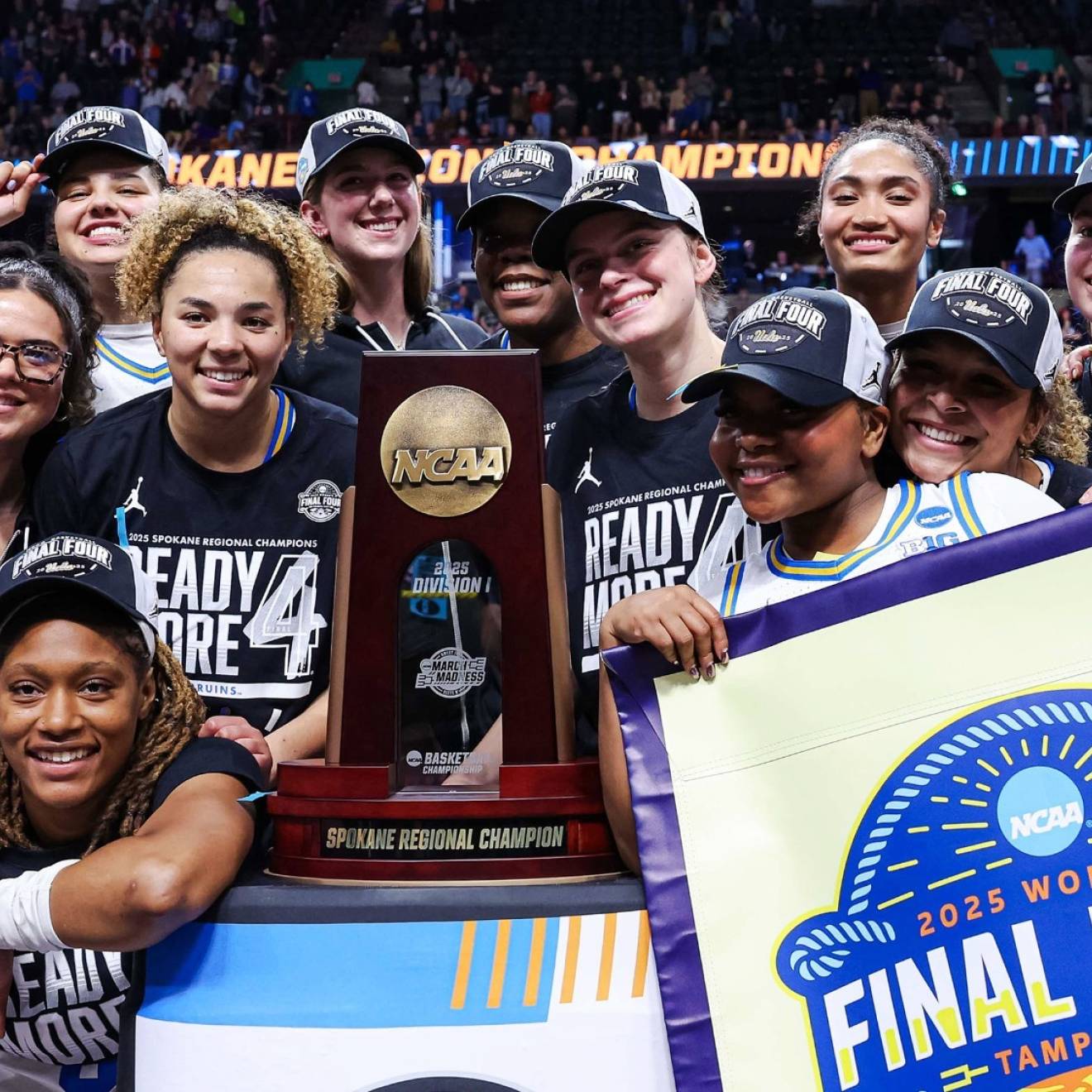Julia Busiek, UC Newsroom
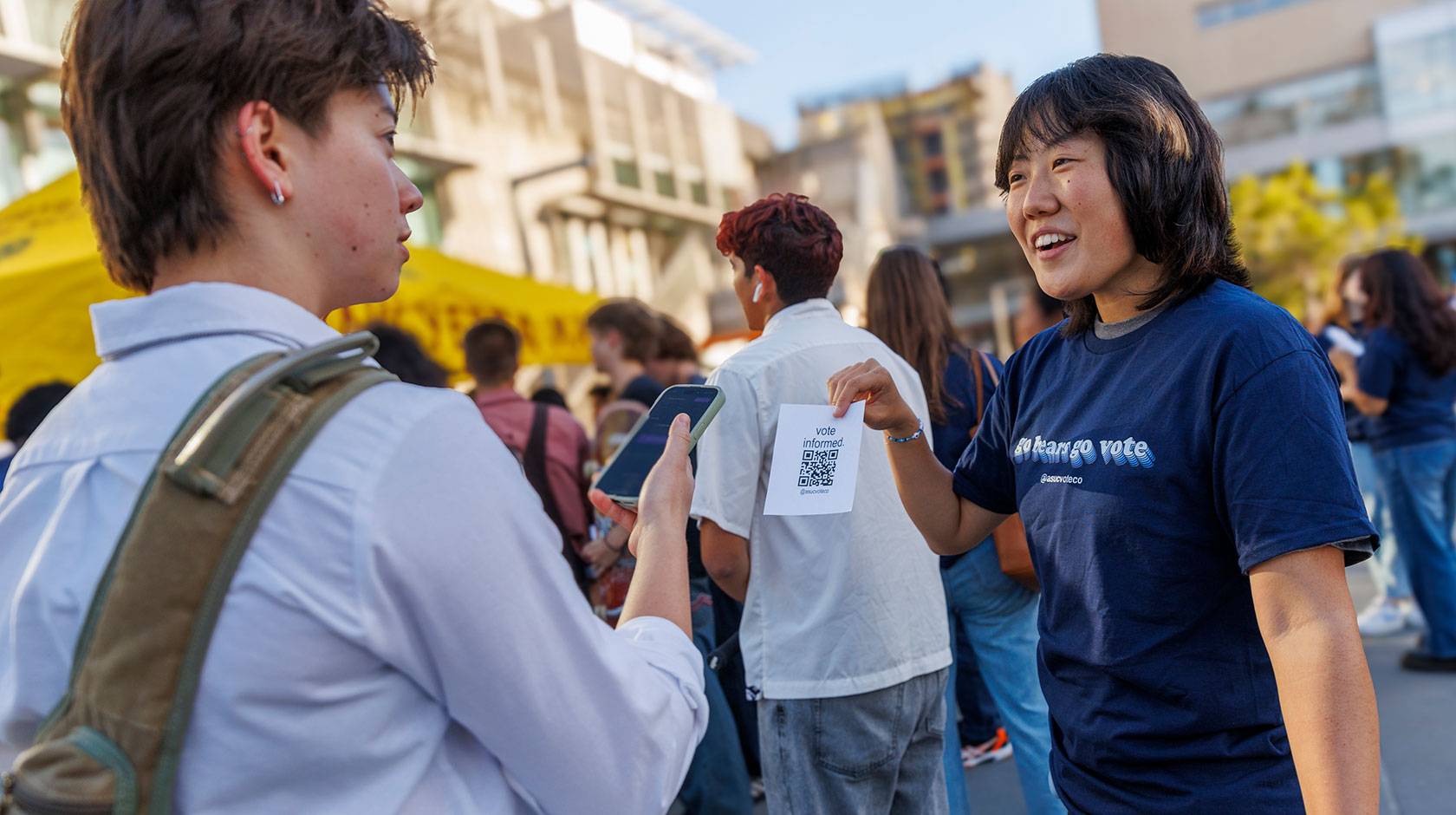
Voting is a solemn responsibility and an essential part of maintaining our democracy. That doesn’t mean it can’t also be a lot of fun.
That was the case on a recent Friday night at UC Berkeley, when hundreds of students gathered for Votechella, a free concert cohosted by the Associated Students of UC Berkeley Vote Coalition.
Dance-punk sensation The Dare rocked the capacity crowd on Sproul Plaza, following an opening set from DJ Mandy (a UC Berkeley environmental studies student by day). Student volunteers took the stage, flanked the plaza and circulated in the crowd, answering election questions and offering on-site voter registration.
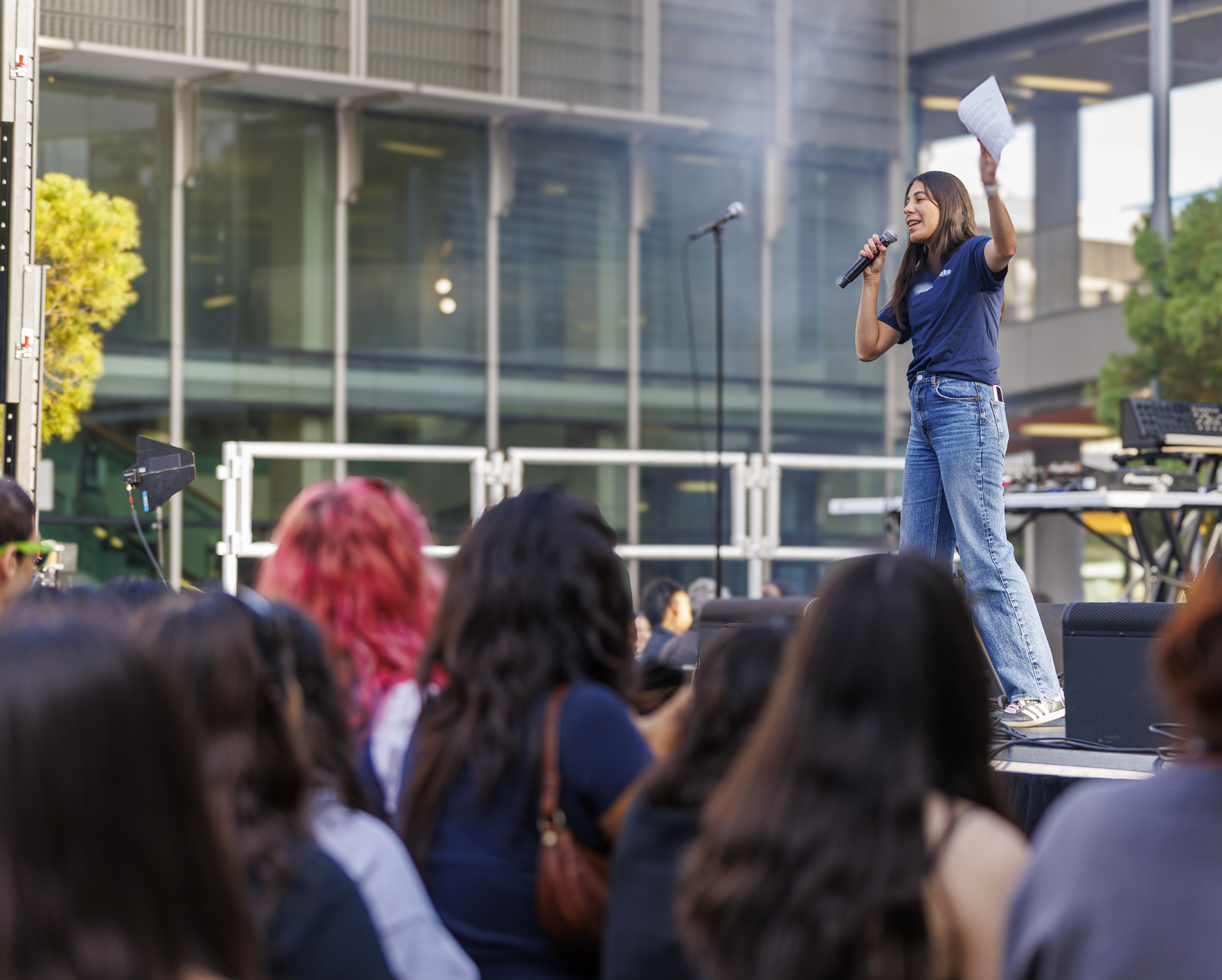
Votechella is just one example of how UC students are mobilizing this election season. On campus, in their hometowns and across California, our students are doing their part to keep our democracy strong.
“My goal is to never persuade someone to think a certain way. It’s truly just to get more people voting. When I'm talking to students back home in Lompoc, I tell them, 'Think about what really matters to you, and then go vote for it.'”
- Linsey Rodriguez, UCLA 3rd year student
UCLA sociology student Linsey Rodriguez tries to educate young voters about the local issues that shape their daily lives, like funding for school facilities and after-school programming.
“We know from polling that young people in Lompoc do have high aspirations. They want to get a college degree, they want to get educated so they can go on to do big things,” Rodriguez says. “But the resources to support them while they’re in middle school and high school aren’t enough.”
This summer, Rodriguez was part of a team of students from UCLA who organized voter registration drives at high schools and community colleges throughout Central California, including in her hometown of Lompoc. Their outreach is part of California Freedom Summer, a project of the UCLA Chicano Studies Research Center. Inspired by the 1964 Freedom Summer effort to register Black voters in the South, California Freedom Summer connects UCLA students to voter outreach and engagement in communities across the state.
Rodriguez talked to high school students about a school bond that Lompoc voters will decide on, and about how their vote for local elected officials could shape policy ideas like directing revenues from the local cannabis industry to youth and after-school programming.
“I try to tell students, ‘These are real things that will make a difference for your life, or for your little brother or sister’s lives. And it all comes down to how this community votes,’” Rodriguez says. The message seemed to get through: in the course of a few days going to high schools in Lompoc, she helped almost 400 students register or pre-register to vote.
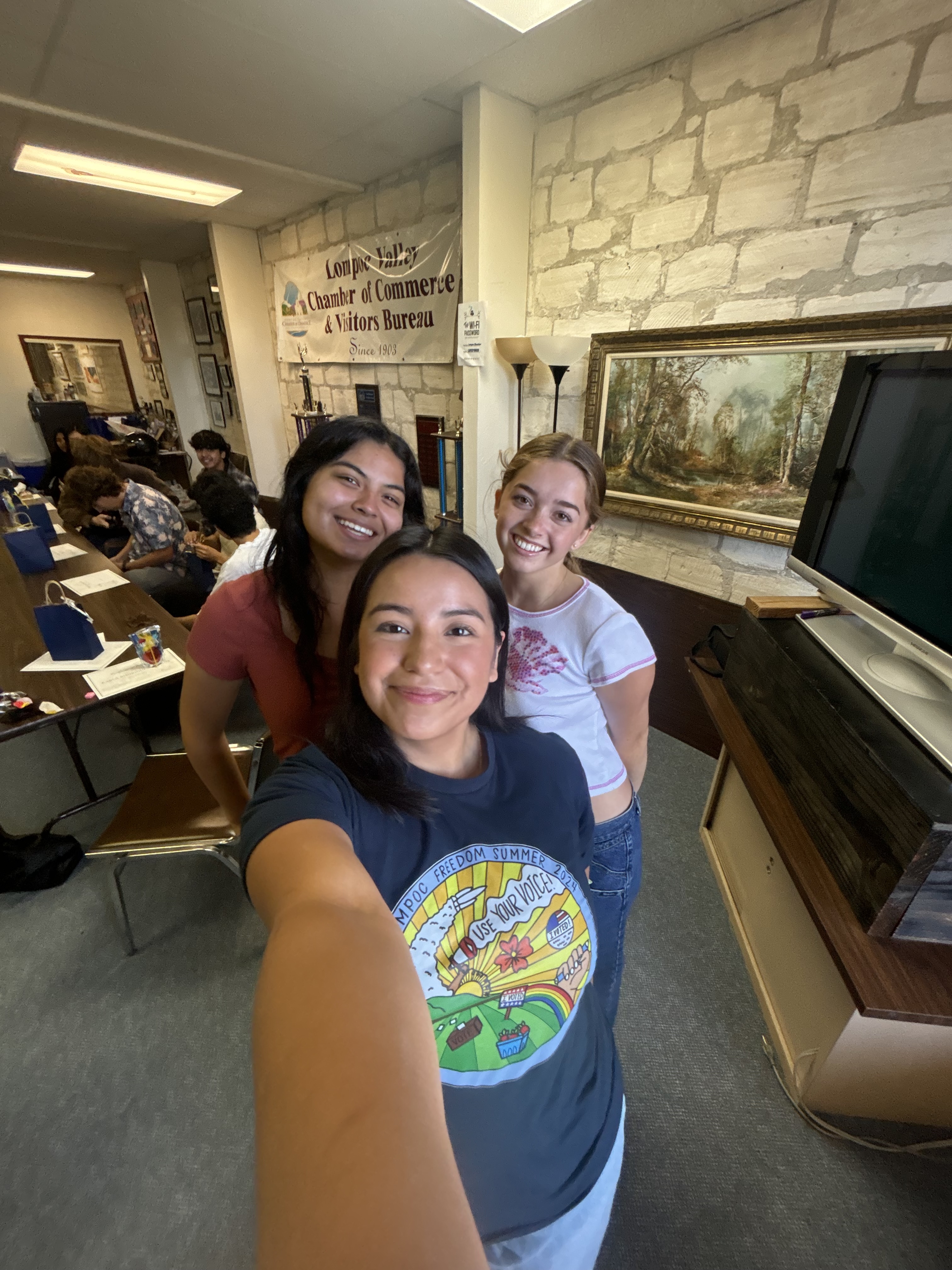
Linsey Rodriguez, center, with two Lompoc high school students who joined her voter registration drives this summer.
“I hear students say their vote doesn’t matter, because they live in California and the election is going to be decided in a couple of swing states. But I don't think they realize how impactful their votes are at the local level, especially on things that arguably shape your day-to-day way more than whoever gets elected President of the United States.”
- Byron Chan, UC Santa Barbara political science student
For Byron Chan, voting is both a civic and a filial duty. “My parents immigrated from China, which is not a place where they felt their voices were heard,” Chan says. “Since coming here, my mom has always valued voting, and she always made sure I was paying attention.”
His mom always brought him along with her to the polls on Election Day. By the time he entered middle school, she’d ask him to help her read up on the issues and formulate his own opinion. As far as Chan knows, since becoming a U.S. citizen, his mom has never missed a single opportunity to cast a vote.
So when Chan went off to college at UC Santa Barbara, he brought his inherited spirit of civic stoke along with him. This fall, he’s an intern in the campus’s Office of Civic and Community Engagement, co-leading student voter registration efforts with fellow intern Jeanne Broome.
“There’s definitely a disconnect between the national political mood, compared to when you bring up something like the cost of housing here in Isla Vista,” says Broome, a fourth-year political science and economics major. “Students might be apathetic about voting until you hit on one of those pocketbook economic issues that make people go, ‘Oh wait, yeah, that does really affect me, I guess I better vote after all.’”
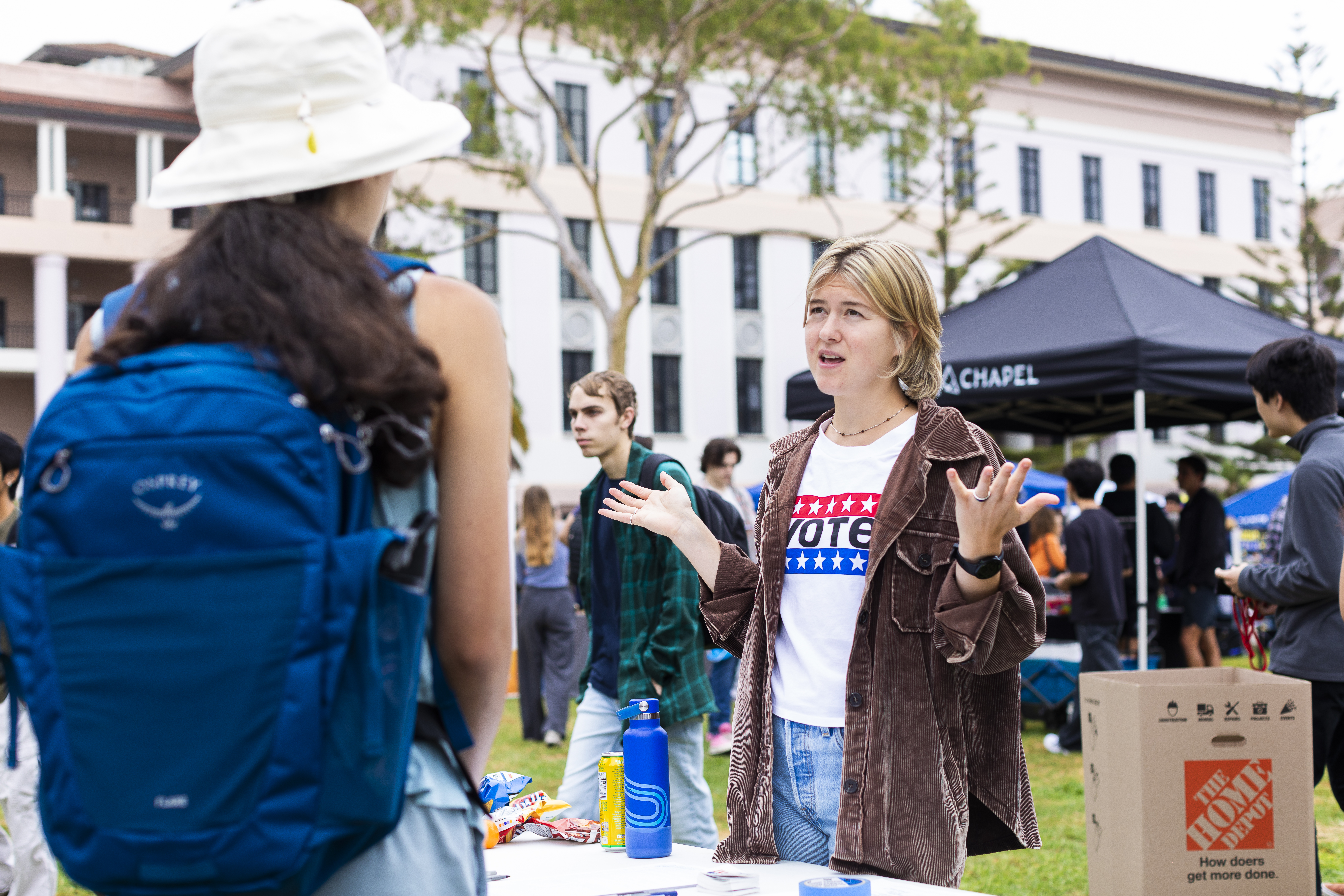
Chan and Broome’s biggest push came during the week before classes started, as students moved into campus housing. Over the course of two days, Chan, Broome and their army of volunteers went around to every floor of every dorm and UC-owned apartment, with stacks of voter registration cards. Thanks to coordinated, student-let efforts like these, nearly 9 in 10 UC Santa Barbara students who are eligible to vote are registered.
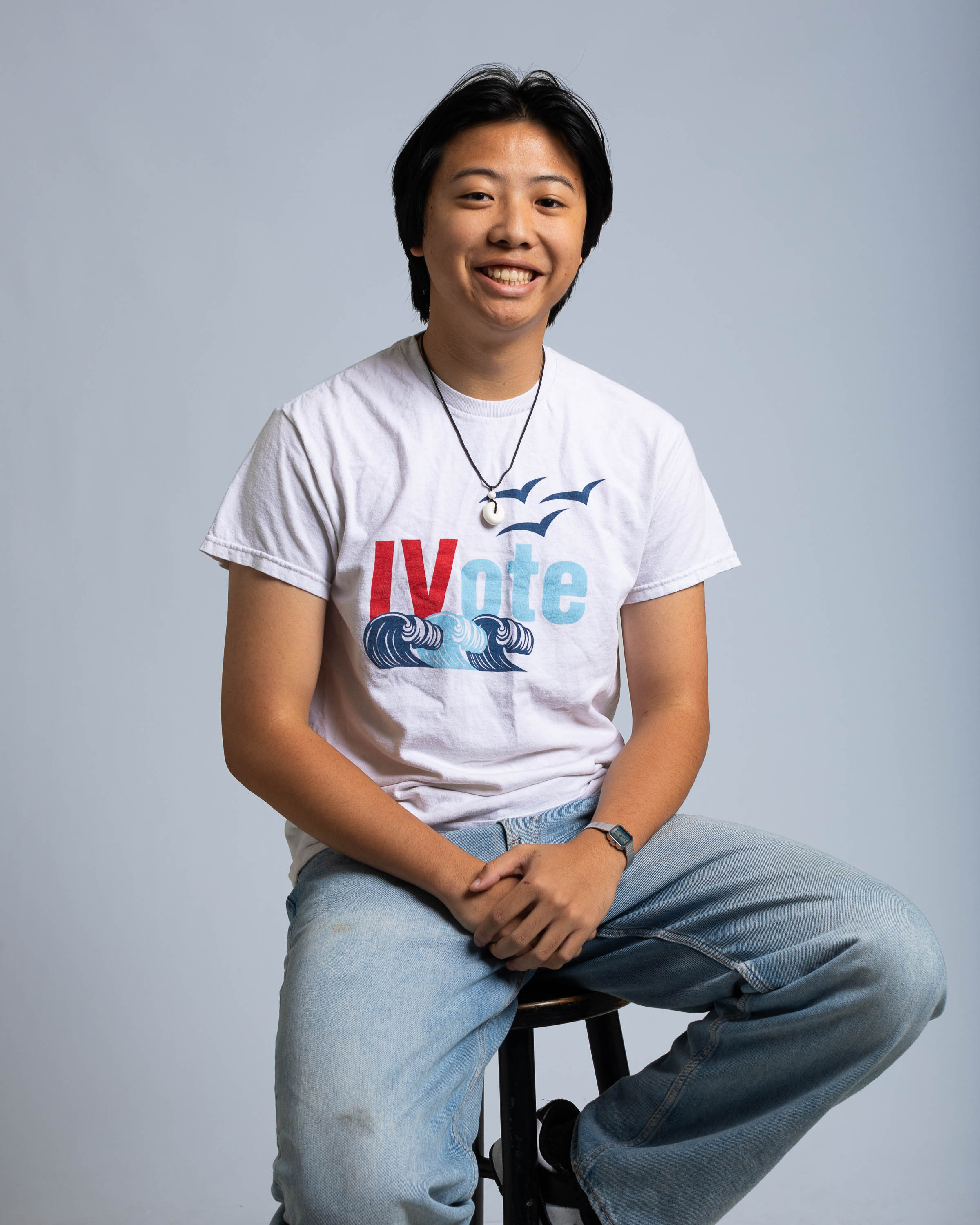
Byron Chan traces his civic engagement to his mom, who brought him to the polls every election day growing up.
“We have pediatric patients come in with asthma exacerbations. I can get their symptoms under control and send them home with an inhaler. But I can't take the smog out of their air. And when you think about the places with the most smog, those are also the places lower rates of voter turnout. These are patients whose voices are not being heard.”
- Talia Ruxin, UC San Francisco third-year medical student
Talia Ruxin makes democracy a part of her medical practice. “We take what’s called a social history of each patient,” explains the third-year UC San Francisco medical student. Typically, this involves questions about a patient’s home life, their work, their family — some of the non-medical factors that nonetheless play a big part in a person’s health.
“And then I’ll ask, ‘Are you registered to vote?’” Ruxin says. The question sometimes catches patients by surprise. “But as a future doctor, I want them to know they have a stake in their health in a multitude of ways, including their ability to vote on candidates and issues that absolutely affect their health.” That includes everything from environmental policy that affects air and water pollution to housing to the price of insulin to access to insurance.
“Right now we’re kind of stuck in a cycle, where our health care system doesn’t work for a lot of people,” Ruxin says — and the people it doesn’t work for are likelier to be members of groups with lower rates of voter turnout, “so legislators aren't as inclined to seek out their opinions, so their needs aren’t considered by policy changes, and the health care system doesn’t improve.”
Ruxin has found lots of different ways to try to break that cycle. She’s UC San Francisco captain for the Healthy Democracy campaign, a nonpartisan voter registration competition among medical schools nationwide. She’s also a member of Vot-ER, a nonpartisan movement of health care providers that connect patients with voting resources. And this fall, she’s overseeing a partnership between San Francisco General Hospital and the San Francisco Department of Elections to help patients who find themselves unexpectedly hospitalized on Election Day still cast their vote.
“We never want anybody to be disenfranchised because of their health,” she says.

UC San Francisco medical student Talia Ruxin
“A lot of our students are first-time voters, or they’re moving in from out of state. So they might just need a little extra help figuring how it works, how to register, how to send in their mail-in ballot or how and where to show in to vote in person.”
- Rebecca Angela Ruiz, UC Graduate and Professional Council board member, VP of External Affairs for the Associated Graduate Students and Ph.D. student at UC Irvine
Rebecca Angela Ruiz sees the upcoming election as a way for the UC community to come back together in the wake of the COVID-19 pandemic. “The last two elections during the pandemic, we couldn’t have a personal presence. It was all email and social media outreach,” says Ruiz, a Ph.D. student in criminology, law and society at UC Irvine. “Going into this voting season, it was nice to plan ways to actually get out there and talk to people.”
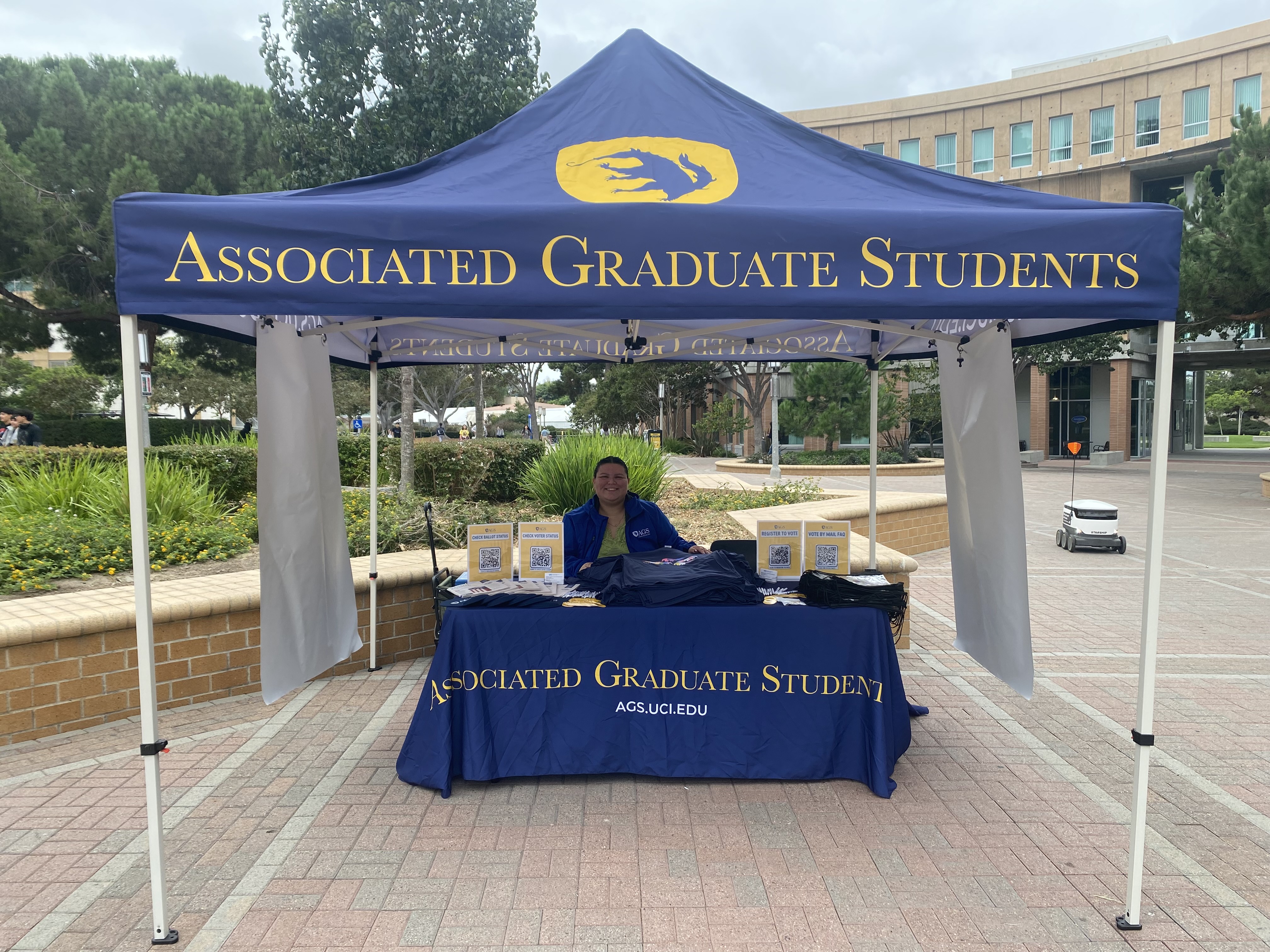
This year, Ruiz made voter outreach a priority in their successful run for external vice president of the Associated Graduate Students of UCI. Their strategy to encourage voting among members of the UC Irvine community is less about persuasion and more about making it easier for everyone to participate and get informed. They’ve staffed a voter info booth on campus, and they’ve organized for the campus transit system to run shuttles from student housing to the campus vote center during the weekend before Election Day.
Through the Associated Graduate Students at UC Irvine, Ruiz has partnered with the undergraduate student association to host a series of candidate town hall meetings on campus. Hundreds of people, including students, faculty and Irvine residents, have turned out for meetings with candidates for mayor, city council and Congress.
“Our focus of these events is to get people involved in local issues and local races, since in a lot of ways those are the more impactful issues in our day-to-day lives in Irvine,” Ruiz says. Candidates have fielded questions about a proposal to build more warehouse space instead of housing in Irvine and plans for upgrades to a local park.
Ruiz wants voters to be engaged and informed in all levels of government. But they’ve also created opportunities for people who can’t vote to get involved in the upcoming election. They’ve sent out campuswide emails which invite all students to reach out to participate in civic engagement, recruiting volunteers to staff voting info tables, coordinating candidate forums and organizing the polling place shuttle.
“We have undocumented students, international students, and students in the Underground Scholars program, which is a student-run organization and UCI office which offers pathways and support into higher education for incarcerated, formerly incarcerated and justice-impacted students,” Ruiz says. “A lot of them do experience voter disenfranchisement, and I feel like they shouldn't be left out of the mix.”

